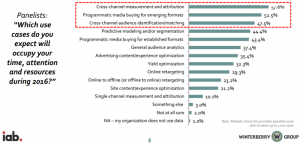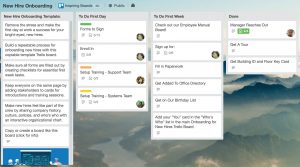
Personality assessments have their pros and cons. Here at Vitru, we take pride in the amount of work we do in creating assessments that properly identify all of an employee’s strengths, so our clients know what they’re good at, and what tasks they’re better off avoiding. Everyone works, behaves, and thinks differently, and a good test evaluates not on the basis of pass/fail, but on metrics which assess what the employee is capable of and letting the employer decide where they fit. So how are many common personality assessments getting this wrong? In more ways than you might think.
Working From Old Books
Long before companies used personality tests in the workplace, they were used in popular psychology, by researchers, in tests. How long ago are we talking? About as far back as the 1940s. Back then, the most popular test was the Myers-Briggs tests, which evaluated people on a limited number of metrics, and recently has been found to be woefully inaccurate. Writing for Vox, Science Reporter Joseph Stromberg (@josephstromberg) gives us a scathing indictment of Myers-Briggs.
“It’s 2014. Thousands of professional psychologists have evaluated the century-old Myers-Briggs, found it to be inaccurate and arbitrary, and devised better systems for evaluating personality. Let’s stop using this outdated measure – which has about as much scientific validity as your astrological sign – and move on to something else.”
Even proponents of the test say it shouldn’t be used in the workplace. Personality assessments can help you determine fit at your company, but only if you’re using modern methods built from the ground up with the workplace in mind.
Relying on Binaries
One of the other large problems most personality assessments (like Myers Briggs) stumble through is using Binaries. In these kinds of tests, you’re either one thing in every way, or you’re completely the opposite. Extroverted or introverted, pick one. You can’t have both. Except you can! No one is a complete introvert or extrovert. We all have times when we need to be alone, and when we’d prefer to be with others. That most tests think people have to be one or other limits their potential.
At Vitru, we use more than binaries. We use a variety of different personality assessments, and judge you not based on whether you’re the kind of worker who works alone or with others, but how often you gravitate towards one or the other. This makes our assessments less a question of either/or, but of “how much?” It’s a subtle, but large difference, especially when you’re building a team. This leads me to my next point.
Focusing on Individuals
The last big issue we see with common personality assessments is that they like to work in a vacuum. They ask you a few questions, give you your type or score, and send you on your way. How is that supposed to help you in the workplace? Focusing on individual results leads to unwanted competition between co-workers; Shelly scored a 93 on assertiveness — does this mean she’s better at sales than Carl, who scored a 78? Maybe, maybe not.
A good personality test should strive not to help employees see themselves as employees, but as a part of a larger team. This is why our tests focus on complementary types. No one “wins” our personality test — everyone is on a different part of the same spectrum, and our goal is to build better teams with strengths that go together. And once you have those numbers, you can create more effective team exercises, which create tighter-knit and more collaborative teams. That way, everyone feels a little more valued for their contributions. And when they feel valued, 93% of employees are motivated to do their best work.
This is why we should reinterpret our understanding of personality assessments. They can be a hiring tool, but only when we rebuild them with employment in mind, and stop being so attached to older methods of evaluation. Binaries aren’t set in stone, and when you move away from them, You can focus on creating more team-oriented personality assessments dedicated to creating better teams and a more collaborative culture.
(207)










